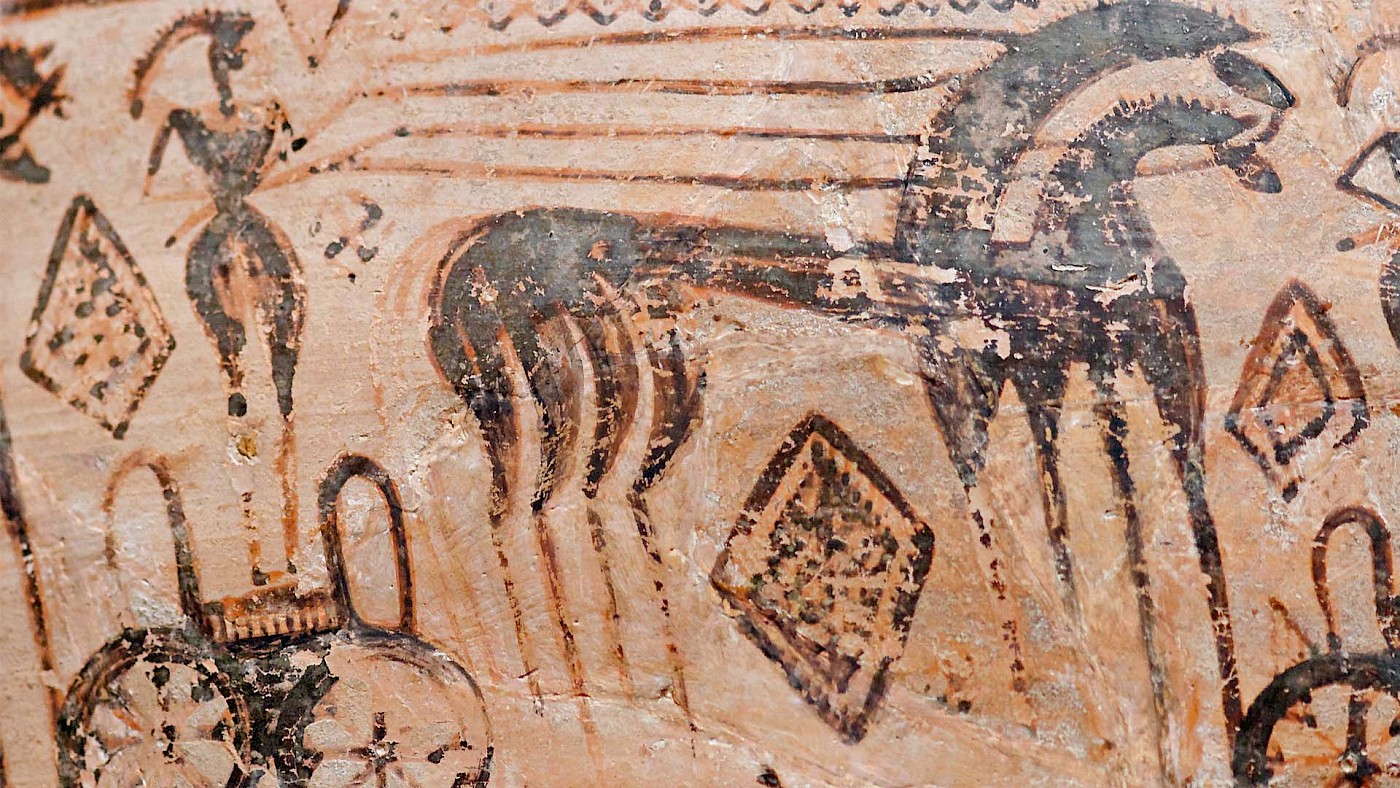In his article, Matthew gives a brief rundown of the history of the term “Dark Age” for a particular period of ancient Greek history, saying that it “was initially adopted on the analogy with medieval Europe”. Because of “[t]he pejorative connotations […] medievalists and archaeologists have reacted against the term”. He goes on to qualify the phrase at length and explains how it’s often a more convenient shorthand compared to the phrase “Early Iron Age Greece”.
Yet, reactions from certain quarters were predictable: some simply reject the idea of a “Dark Age” because it elicits a view of the period as backwards and irrational. They also point out that in the past half a century or so, much archaeological work has been done to “shed light” (sigh) on what they apparently think was a quite literal “Dark Age”. But those who argue vehemently against the application of a particular phrase to a period of time seem to not have understood the original intent behind its use.
Anthony Snodgrass points this out in his foreword to the 2000-edition of his Dark Age of Greece. He writes, rather exasperatedly (p. xxiv):
Despite the fact that I still strongly maintain the position implied by that phrase, I nevertheless regret not having named the book, say, The Early Iron Age of Greece. […] But more importantly, it would have avoided presenting such a tempting target for the attempts to use later discoveries to dilute, modify, or reject outright the view that a prolonged period of cultural, economic and social regression had engulfed Greece after the fall of the Mycenaean civilisation. Today, not a year passes without a claim that some new find, or some newly revealed evidence of continuity, has invalidated the belief in such a period of “darkness”. Yet it remains beyond question that the material picture presented by this period is still largely devoid of many of those important attributes which can be found in the record of both the preceding and, still more obviously, the ensuing ages.
Certainly, use of the phrase “Early Iron Age” seems more neutral, not in the least since it’s quite literally the age in which iron replaced bronze as the metal of choice for the production of tools. But the term “Dark Age” has a historical dimension: a period between the fall of one “civilization” – however defined – and the rise of another. The term was originally used, after all, to describe the period following the retreat or fall or the Roman Empire in the west.
Oliver Dickinson, in his The Aegean from Bronze Age to Iron Age (2006), notes (p. 6-7):
The term “Dark Age” itself involves a basic conceptual problem. […] Its potential to mislead has become increasingly apparent. […] The usage “Dark Age” cannot be avoided altogether, however, because of its prominence in previous discussion.
Lest we forget, no designation for a particular period of time is without its problems, of course. The “Classical Age”, after all, was named so because its art and culture were deemed to set a standard for all time, with the preceding “Archaic Age” deemed a necessary prelude to greatness, with all that it entailed. Yet I have heard no fervent calls to abolish either term. And I haven’t even touched upon the difficulties involved in determing the upper and lower chronological limits to a particular period, so as to not open yet another can of worms.
In short, then, I see no reason to reject outright the use of the term “Dark Age”. It’s descriptive, but not in the sense that Greece in this period itself was literally a “Dark” or backwards place. Nor should it be regarded as a period about which we are necessarily fumbling in the dark; an issue that could only be “illuminated” through further research. Rather, I think Snodgrass is right in applying it to a period when, in general, and as far as we can tell, Greece was a more small-scale and less complex world – and not, I hasten to add, necessarily a worse one! – than that of either the preceding Late Bronze Age or the ensuing Archaic period.
Greece flourished in the shadows of the fallen Mycenaean palaces, transformed, and eventually became what would become the “Classical” Greek culture – whatever that might be exactly. To deny the “Dark Age” its place in history is to deny not just a critical phase in the development of ancient Greece a descriptive and imaginative name, but to also deny part of the history of the discipline of archaeology itself. Neither, I think, is desirable.
